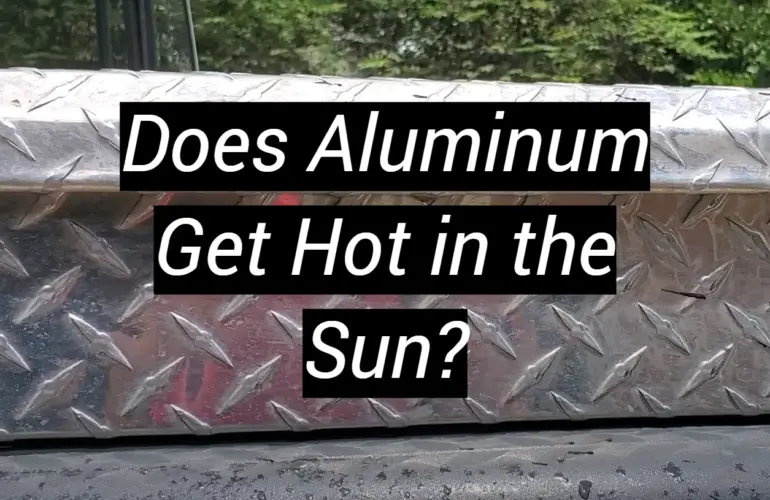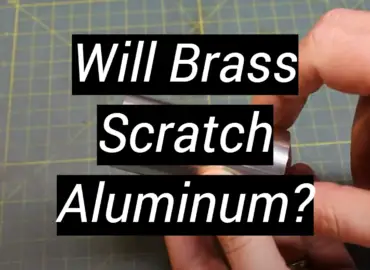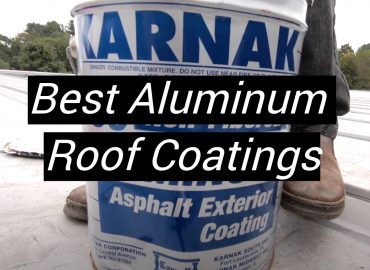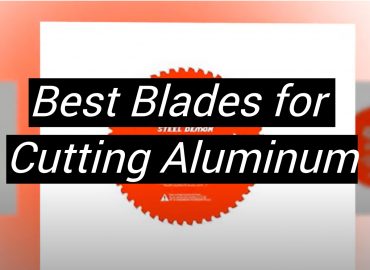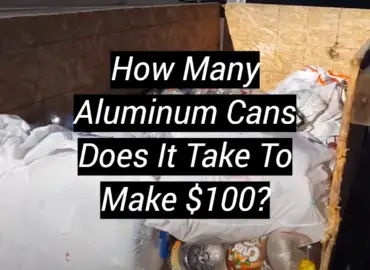Do you ever wonder whether aluminum objects get hot in the sun? We are going to answer that question and much more! Aluminum is a light metal used for many applications, from home decor to automotive parts. Due to its lightweight nature and abundance in nature, it is an ideal material for use outdoors. The crucial factor to know about aluminum when placed outside is how heat induced by the sun affects it. Along with answering the primary question about the temperature of aluminum, we will also discuss other factors related to using this metal outdoors like corrosion protection and color stability. So let’s dive deeper into understanding how sunlight interacts with aluminum so you can make informed decisions when incorporating this material into your outdoor projects!
What Does The Sun Do To Aluminum?
The sun’s high energy impacts aluminum in many different ways. Aluminum is able to absorb and radiate solar energy more quickly than most materials, making it an effective heat conductor. This means that on hot days, when the sun is at its strongest, the aluminum will heat up quickly. The dark surface of the aluminum reflects less light, which helps further contribute to a higher temperature due to less efficient cooling from radiation.
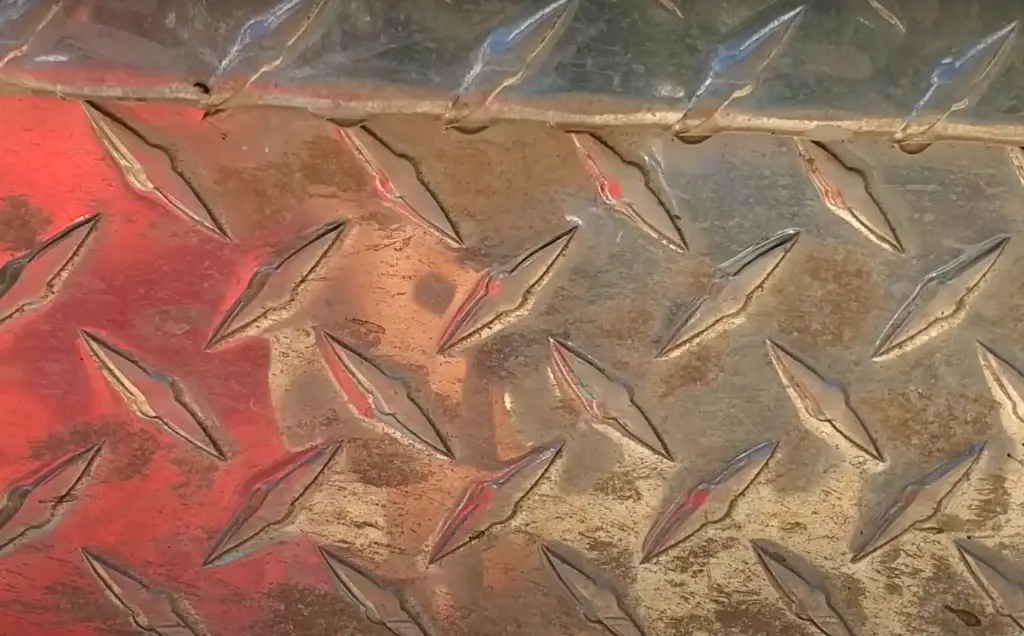
To prevent aluminum from getting too hot, reflective coatings can be applied to help minimize the absorption of solar radiation and reduce the thermal buildup. In addition, proper shading and insulation techniques need to be employed to help keep temperatures under control. With these methods in place, aluminum can withstand extreme temperatures without suffering damage or becoming too hot to touch.
Ultimately, the sun’s energy can have a significant impact on aluminum, but this effect can be mitigated with proper planning and protection. By understanding the way that solar radiation affects aluminum, you can ensure that your structures remain safe and comfortable under even the most extreme conditions. [1]
Does Aluminium Get Hot Easily?
The short answer is yes, aluminum does get hot in the sun. Aluminum is a great conductor of heat which allows it to absorb and transfer heat quickly and easily.
Aluminum surfaces can get extremely hot, reaching temperatures above 100 degrees Fahrenheit (37+ Celsius) on hot summer days.Please note that while aluminum can get hot in the sun, its thermal conductivity makes it easier to handle compared to other metals. Aluminum dissipates heat much easier than some other metals like steel so it doesn’t stay as hot for long periods of time.
It’s also worth mentioning that the color of an aluminum surface can have a big impact on its heat absorption capabilities. For example, lighter colored surfaces will reflect more sunlight and stay cooler than darker coloured surfaces that absorb more light and heat up faster. To prevent outdoor furniture from heating up under the sun, they are now manufactured in lighter shades or have a reflective coating.
What Material Gets Hot In The Sun?
Materials that are dark in color absorb more energy from the sun, which causes them to become hotter compared to materials that are light-colored. However, aluminum is an exception to this rule. Although it is a light-colored material, aluminum does have the ability to get hot in the sun because of its highly reflective surface. The sunlight that hits aluminum reflects back into the environment rather than being absorbed by the metal, which causes it to heat up quickly when exposed to direct sunlight for long periods of time. Aluminum’s unique properties make it perfect for applications that require both insulation and heating efficiency. People often use aluminum foil or other aluminum products in their homes or vehicles in order to reflect excess heat away from themselves during hot summer days. By reflecting incoming solar radiation away from itself, aluminum is able to stay cooler than other materials, such as wood or plastic, even when exposed to the sun for long periods of time.
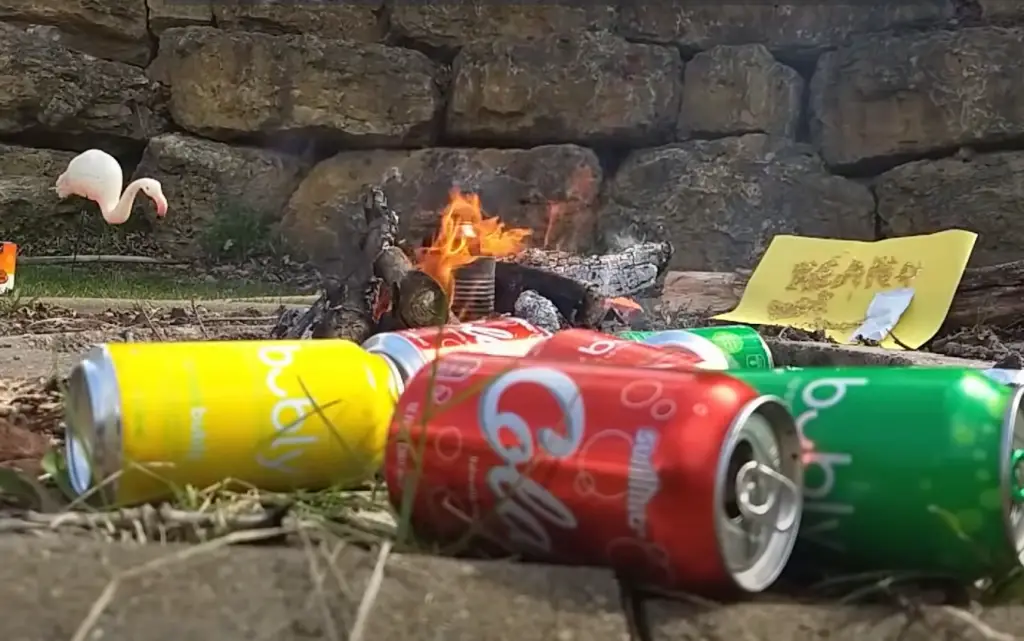
Furthermore, aluminum’s high melting point ensures that it will not melt under extreme conditions of heat and sunlight. Therefore, while other materials may become hot in the sun, aluminum will remain relatively cool while still providing effective insulation benefits.
In conclusion, because of its unique reflective properties and high melting point, aluminum does get hot in the sun but remains much cooler than other materials like wood or plastic. This makes it an ideal choice for applications that require both heating efficiency and insulation. [2]
Can Sunlight Melt Metal?
Yes, sunlight can melt metal! While most metals are not affected by the sun’s UV rays, aluminum is a special case – its high thermal conductivity and low melting temperature make it vulnerable to heat. In fact, aluminum can become hot enough in the sun that it will eventually melt. This process is accelerated if the aluminum object is placed on an area reflecting more of the sun’s rays, such as sand or dark asphalt. As with any other metal exposed to extreme heat conditions, it is important to be aware of possible safety hazards associated with melted aluminum. If you plan on spending time outdoors with aluminum objects in direct sunlight for extended periods of time, ensure that you take appropriate safety precautions.
Additionally, if you ever come across an aluminum object that has been exposed to the sun for a long period of time and appears to have melted, make sure to keep away from it as it could be hot enough to cause serious burns. It is best to let the object cool down before attempting to handle it. If you need help disposing of the material safely, contact your local waste management services.
Why Is Aluminum A Good Heat Conductor?
Aluminum is an ideal material for use in hot climates due to its excellent thermal conductivity. Aluminum has the ability to dissipate heat quickly, making it well suited for applications where high temperatures are involved. Heat transfer through aluminum is much more efficient than other materials like steel or copper, which require longer time periods to cool down after being exposed to extreme temperatures. Aluminium’s lightweight and low cost makes it a popular choice among manufacturers. Its strength also allows it to be used in structures that are subject to frequent changes in temperature, like roofing and siding on homes and businesses.
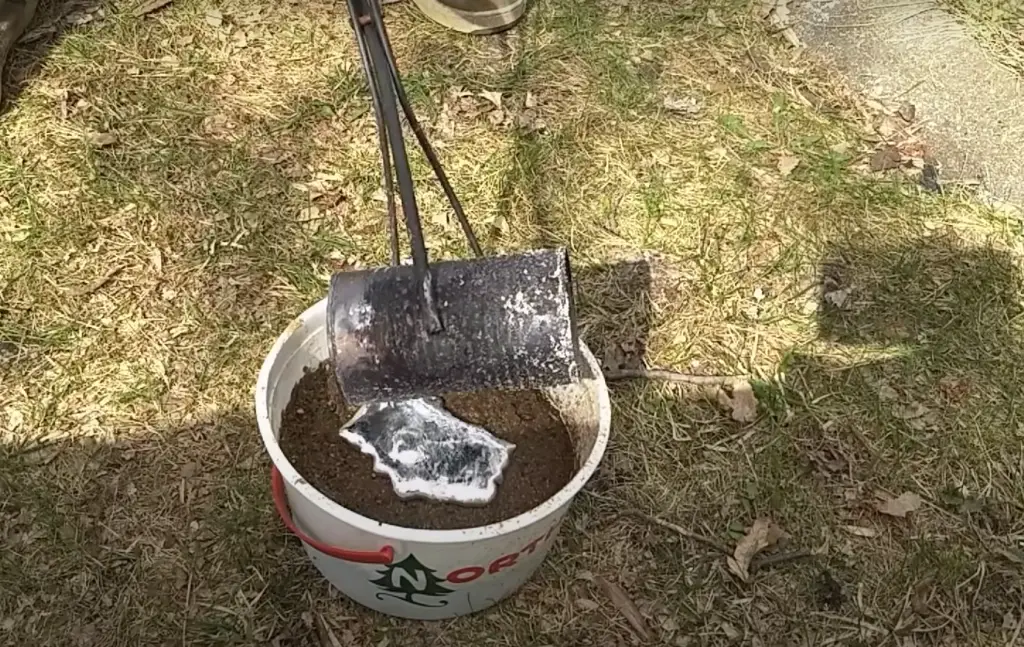
Additionally, aluminum can be easily formed into many shapes and sizes which make it a versatile option for multiple uses such as cookware and car parts.
How Hot Does Aluminum Get?
Aluminum is an excellent conductor of heat and can become incredibly hot in the sun. The exact temperature depends on many factors, such as the color of the aluminum surface, how reflective it is, and how long it has been exposed to sunlight.
At this temperature, objects made from aluminum can cause serious burns if touched directly. [3]To prevent damage or injury, those using products that are made from aluminum should ensure that they handle them with caution when out in the sun.
Additionally, people should avoid placing any objects containing aluminum near flammable items as heated aluminum can easily ignite them. It is also important to note that aluminum products should not be left in direct sunlight for an extended period of time as heat build up could eventually cause them to warp or melt.
In conclusion, aluminum can become very hot when exposed to direct sunlight and should always be handled with care. People working with aluminum products should ensure that they are aware of the potential risks associated with excessive exposure to heat and act accordingly to prevent any accidents from occurring.
Is Aluminum A Good Insulator?
Aluminum is an excellent thermal conductor, meaning it can absorb and release heat quickly. As such, it’s not a good insulator—that is, it won’t keep the heat in or out for very long. It will help to conduct away some of the energy from the sun, but eventually it will become hot too. For this reason, aluminum isn’t typically used as insulation material in buildings because it cannot maintain a consistent temperature over time.
However, aluminum does have a low coefficient of linear thermal expansion (CTE), meaning that its rate of expansion when heated is lower than many other materials. This makes aluminum useful for creating structures like bridges and airplane wings that need to stay relatively stable even in changing temperatures.
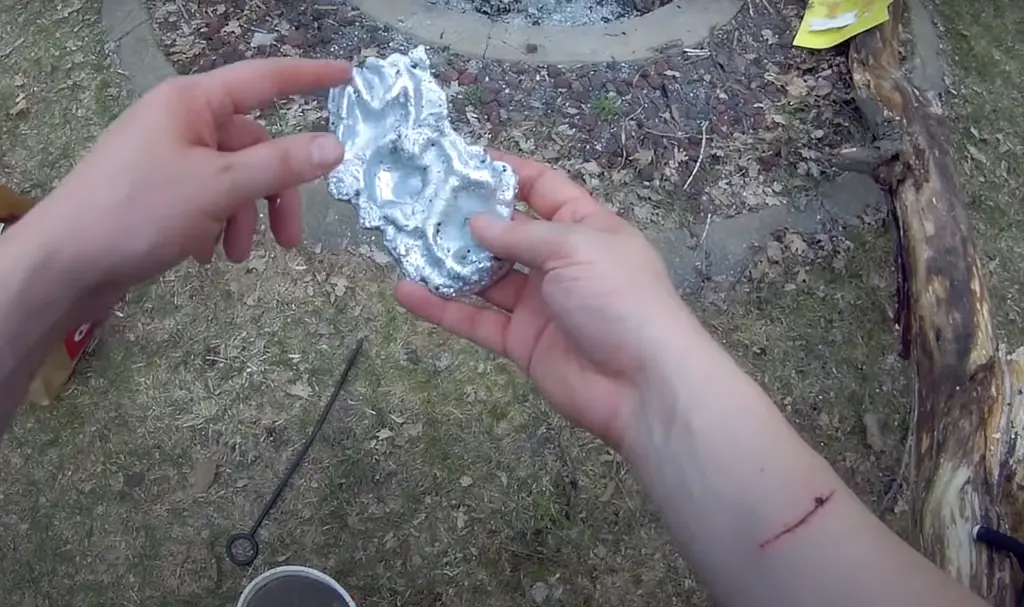
Therefore, while aluminum does not make a good insulator, it has other important properties which make it an effective material in some applications. Aluminum’s conductivity helps to regulate temperatures in certain contexts, and its low CTE makes it useful for crafting stable structures.
What Metal Does Not Conduct Heat?
While the sun can heat up aluminum, there are other metals that do not conduct heat as well. These include copper, steel, and brass. Copper has a low thermal conductivity of around 0.39 W/mK, meaning it does not transfer heat very quickly. Steel has a slightly higher thermal conductivity of around 50 W/mK but is still relatively poor at transferring heat compared to aluminum or other materials like ceramic or concrete.
Finally, brass has a thermal conductivity of around 115 W/mK which is higher than both steel and copper but still much lower than aluminum’s thermal conductivity of 205 W/mK.
It is also very malleable and easy to work with. [4]Why Do People Put Aluminum Foil On Door Knobs?
People often put aluminum foil on door knobs to stop the metal handles from becoming too hot to touch in the sun. This is because aluminum is a great reflector of sunlight, meaning that much of the solar radiation will be reflected away instead of being absorbed by the door knob. This helps keep the metal handle cooler and prevents it from burning people who come into contact with it.
Additionally, depending on how thick the aluminum foil is, some of this reflected energy may also provide some insulating properties which can help further protect against burns or other heat-related issues. Thus, covering your door knobs with aluminum foil is an effective way to reduce their temperature in direct sunlight and keep them safe for use.
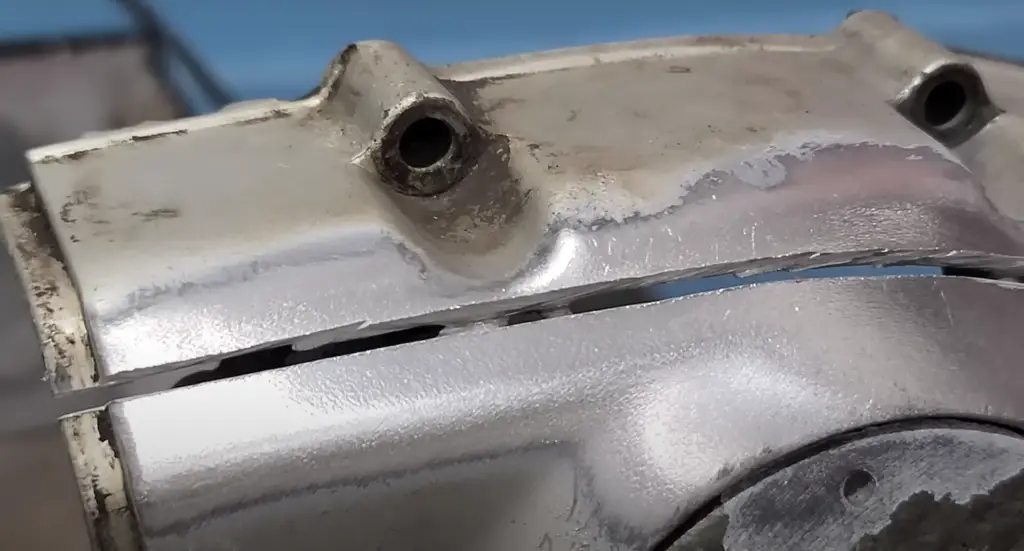
In addition to providing protection from extreme heat, some people use aluminum foil on door knobs for decorative purposes. Foil is easy to shape and cut into unique patterns or designs which can be used to create an interesting look for the door knob without having to purchase a more expensive one with intricate embellishments. Aluminum foil also requires minimal maintenance since it can easily be wiped down with a damp cloth if it gets dusty or dirty. This makes it a great option for those seeking low-maintenance yet stylish decorations around their home.
Using aluminum foil on door knobs is also often much cheaper than buying new ones that are designed to resist solar radiation and extreme temperatures better.
Even with its reflective properties, however, care should still be taken when using aluminum foil in direct sunlight as it can still reach dangerously high temperatures. In such cases, it is recommended that additional insulation be used or the aluminum foil replaced more frequently to help keep the door knob at a safe temperature.
Is Aluminum Good For High Heat?
Aluminum is an excellent material for high heat applications. It has a high thermal conductivity and can withstand temperatures of up to 600 degrees Celsius when used in its pure form. Aluminum also has good corrosion resistance, making it a great choice for outdoor use or in areas exposed to moisture and other corrosive elements.
Additionally, aluminum reflects sunlight very well which helps keep the surface temperature of the material lower than surrounding objects, even when exposed to direct sunlight. Therefore, aluminum will not get hot in the sun as quickly as many other materials. This makes aluminum an ideal material for outdoor structures such as carports, sheds, and patios that need to withstand higher temperatures without suffering excessive damage. Aluminum may also be a great choice for items such as grills, chimneys, and vents that require heat-resistant materials. With aluminum’s durability and good thermal conductivity, it is an excellent choice for any high-heat application. [5]
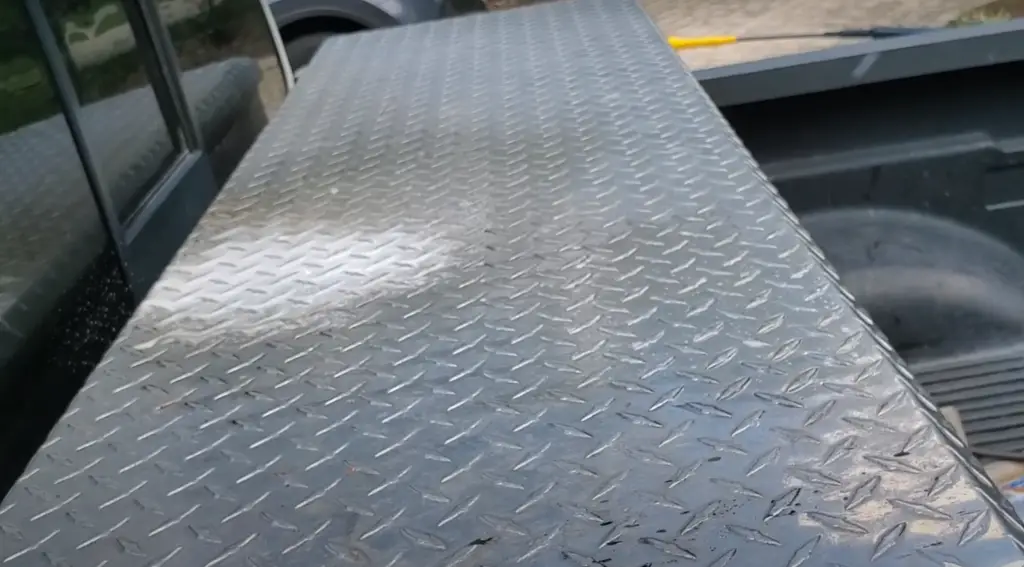
Lastly, the cost of aluminum is relatively low compared to other metals which makes it a great option for those on a budget. All in all, aluminum is definitely a good choice if you need a material that can withstand high temperatures without breaking the bank. It’s strong and durable yet lightweight, making it easy to transport or install.
FAQ
Does aluminum get hot?
Yes, aluminum gets hot when exposed to the sun. Aluminum is a good conductor of heat meaning it quickly absorbs and transfers heat energy from one place to another. When exposed to direct sunlight, aluminum objects become hot by absorbing some of the sun’s rays. The higher the temperature and the longer it is in direct sunlight, the hotter aluminum can get – sometimes reaching well over 150 degrees Fahrenheit (65 degrees Celsius). To avoid this, cover any aluminum materials that will be left in direct sunlight with a protective coating such as paint or sealant. Additionally, keeping them out of direct sunlight and giving them proper ventilation can help prevent them from getting too hot.
Which metal gets hottest in the sun?
Some of the metals that can quickly get very hot in direct sunlight include aluminum, copper, steel, and iron. Aluminum is the metal that tends to absorb heat faster than other materials and gets hotter quicker. It has a high thermal conductivity meaning it absorbs and transfers heat quickly. Copper also gets hot in the sun due to its high thermal conductivity as well. Steel and iron become extremely hot due to their higher melting points compared to aluminum, making them better at retaining heat for longer periods of time. However, all four of these metals will get hot if left in direct sunlight for any extended period of time.
How do I protect my aluminum from getting too hot?
If you have any aluminum materials that need to be kept outside in direct sunlight, it’s important to protect them from getting too hot. To reduce the risk of your aluminum items becoming overheated in the sun, apply a protective coating such as paint, sealant, or varnish. This will help reduce the amount of heat absorbed and will prevent it from getting too hot. Additionally, ensure that your aluminum items have proper ventilation to help dissipate any accumulated heat energy and keep it at a more comfortable temperature. By taking these steps, you can enjoy your aluminum items without fear of them getting too hot in the sun!
What material doesn’t get hot in the sun?
The answer to this question depends on the material in question. Certain materials can be designed or treated to resist heat, such as some metals like copper and stainless steel that have good thermal conductivity properties, or plastics and ceramics with high thermal insulation properties. Other materials may stay cooler due to their reflective nature, such as aluminum which reflects up to 95% of sunlight away. This is why aluminum is commonly used for roofing, siding, and other exterior surfaces in buildings; it doesn’t get hot in the sun because it reflects much of the sunlight away rather than absorbing it.
Can heat damage aluminum?
Yes, aluminum can be damaged by high temperatures. If exposed to extremely hot temperatures, metals such as aluminum can become weakened and start to corrode or discolor. Additionally, exposure to high temperatures over an extended period of time can cause stress cracking in the metal. To prevent damage from heat, it is recommended to keep aluminum away from extreme heat sources like direct sunlight or open flames.
Useful Video: I Created THE SUN While Melting Aluminum
Conclusion
Yes, aluminum does get hot in the sun. This is because aluminum has high thermal conductivity, meaning that it transfers heat quickly and efficiently from its surface to the surrounding environment. As a result, when exposed to direct sunlight, aluminum will absorb some of the solar radiation and convert it into heat energy. Additionally, since aluminum is reflective, it will reflect much of the incoming energy back out into the environment as well. This combination of absorption and reflection leads to an increase in temperature for an object made with aluminum when exposed to direct sunlight.
It’s important to note that while this phenomenon occurs with all types of metals, including aluminum, some metals are more prone to this effect than others due to their higher thermal conductivity or reflectivity. Therefore, when choosing materials for outdoor projects or applications that require the prevention of heat buildup, it’s important to consider the type of metal being used and its relative ability to withstand sun exposure.
References:
- https://www.fenceall.com/do-aluminum-railings-get-hot-in-the-sun/
- https://wxresearch.org/does-aluminum-get-hot-in-the-sun/
- https://streetfurniture.com/seat-batten-guide-which-material-gets-hottest-in-summer/
- https://allfamousbirthday.com/faqs/does-aluminum-get-hot-with-the-sun/
- https://yardlifemaster.com/do-aluminum-pergolas-get-hot/

